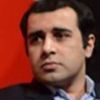10 Pakistan History Books That Illuminate Complex Realities
Recommended by experts including Sree Sreenivasan Powerwomensummit, Saeed Shah, and Tariq Rahman for deep insights into Pakistan's history




What if understanding Pakistan’s history was more than dates and events, but a window into its living, breathing complexities? Pakistan’s story is a tapestry woven with political upheaval, military influence, and social struggles—each thread revealing much about the nation's present and future. Now, more than ever, diving into this history aids in grasping the challenges and hopes of a nation at crossroads.
Journalists like Sree Sreenivasan Powerwomensummit, who engaged directly with Declan Walsh over The Nine Lives of Pakistan, bring a fresh perspective that transcends headlines. Meanwhile, Saeed Shah, a Wall Street Journal reporter, highlights how these works illuminate Pakistan’s intricate political currents. Their insights reflect a collective expert endeavor to unravel Pakistan’s layered realities through rigorous storytelling and analysis.
While these expert-curated books provide proven frameworks to deepen your knowledge, those seeking tailored insights based on their background or specific interests might consider creating a personalized Pakistan History book. This approach builds on expert knowledge, crafting a reading experience that matches your learning goals and curiosity about Pakistan’s past and its impact today.
Recommended by Sree Sreenivasan Powerwomensummit
Social coach, exCDO Columbia, Met Museum
“@declanwalsh Would love to interview you about your book for my global show in the days ahead. We can do noon ET/8 pm EAT. DM or email? sree@sree.net CCing my producers, @vandana_menon @RoseHorowitz31” (from X)
by Declan Walsh··You?
by Declan Walsh··You?
Declan Walsh's years as the New York Times Pakistan bureau chief shaped this incisive look at a country caught between turmoil and resilience. Through the stories of nine individuals—from a desert chieftain preparing for conflict to a lawyer risking her life—Walsh reveals Pakistan's complex political struggles and societal fractures. You gain a nuanced understanding of the forces shaping Pakistan's present, including its security state and creeping extremism, without falling into stereotypes. This book suits anyone eager to grasp Pakistan's layered realities beyond headlines, especially students, journalists, and regional analysts.
Recommended by Mishal Husain
BBC journalist and presenter
“A gripping and timely take on a family and a country—past, present and future.” (from Amazon)
by Owen Bennett-Jones··You?
by Owen Bennett-Jones··You?
Owen Bennett-Jones brings decades of journalistic experience to this detailed investigation of the Bhutto family's complex role in Pakistan's political landscape. Drawing from over twenty years of original research and unpublished documents, the book maps the family's enduring influence from colonial ties to contemporary geopolitics, revealing the human costs behind their power struggles. You’ll gain insights into key historical events like Zulfikar Ali Bhutto’s execution and Benazir Bhutto’s assassination, framed within Pakistan’s broader military and international relationships. This work suits anyone eager to understand Pakistan’s political fabric through the lens of one of its most pivotal families.
by TailoredRead AI·
This personalized book explores Pakistan’s political evolution and key historical moments with a focus tailored to your interests and background. It covers critical events, influential figures, and social dynamics that have shaped the nation, offering a curated journey through Pakistan’s complex past. By addressing your specific goals, it reveals how historical forces continue to influence present-day realities. The book matches expert knowledge with your curiosity, enabling a deeper understanding without wading through unrelated material. You’ll engage with nuanced narratives and pivotal developments, gaining insights that resonate personally and intellectually. This tailored approach ensures that your exploration of Pakistan’s history is both meaningful and uniquely relevant.
Recommended by Tariq Rahman
Distinguished National Professor of Social Sciences
“The effort which has gone into writing this book can only be called monumental. It is highly recommended to all who are interested in truthful history and is especially recommended to those who disagree with the author - if only to promote rational, intellectual debate on the subject of Pakistan's origins and identity.” (from Amazon)
Pervez Hoodbhoy, a physicist and educator with decades at Quaid-e-Azam University and stints at MIT and Carnegie Mellon, approaches Pakistan's history with the analytical rigor of a scientist. In this book, you gain a layered understanding of Pakistan's formation, from ancient times through Partition, wars, and the emergence of regional identities like Baloch nationalism. Hoodbhoy doesn't shy away from exploring complex themes such as religious fundamentalism and military rule, offering insights that challenge simplistic narratives. If you're looking to comprehend how historical forces and personalities have shaped Pakistan’s state and society, this book offers a thoughtful, evidence-based perspective that will engage scholars and curious minds alike.
Recommended by Husain Haqqani
Former Pakistan ambassador to the US
“Pakistan's dominant institution, the army, has embraced an anti-Indian Islamo-nationalism that alone can explain some of its less professional institutional decisions. In her well-researched book, Fair analyzes the ideological underpinnings of the Pakistan army's strategic culture. It is a valuable addition to the literature on the subject with original material often overlooked by scholars in the past.” (from Amazon)
by C. Christine Fair··You?
by C. Christine Fair··You?
Drawing from her extensive experience at Georgetown University's Security Studies Program and her tenure with RAND Corporation and UN missions, C. Christine Fair explores the Pakistan Army's enduring strategic culture that drives its persistent conflict with India. You learn how the army's ideological commitment to Kashmir and regional rivalry shapes policy decisions, including the use of proxy militants under nuclear cover. The book meticulously analyzes decades of the army's own publications, revealing that its concept of victory hinges on resisting India's rise rather than conventional military success. If you seek to understand the complexities behind Pakistan’s military posture and its geopolitical consequences, this book offers critical insights into the intertwining of ideology and strategy.
Recommended by Vali Nasr
Professor Johns Hopkins-SAIS, Former State Dept Advisor
“For many in the West, Pakistan is an enigma, a Muslim homeland that seems to have lost its way into a wilderness of perpetual crisis, extremism, and nuclear standoff with India. The Struggle for Pakistan is a perceptive look at the idea and reality of Pakistan, its history and future in the context of the global order, by one of the most preeminent scholars of South Asia. Well written and brimming with fact and insight.” (from Amazon)
by Ayesha Jalal··You?
by Ayesha Jalal··You?
Drawing from her extensive career as a historian specializing in South Asia, Ayesha Jalal offers a nuanced exploration of Pakistan’s turbulent journey since its founding in 1947. You gain insight into the country’s political struggles, including military coups, ethnic divisions, and its fraught relationships with neighbors and the U.S., all of which have shaped its democratic challenges. The book delves deeply into pivotal moments like the 1971 Bangladesh separation and persistent conflicts over Kashmir, providing context to Pakistan’s current state. If you're seeking to understand Pakistan’s complex identity and ongoing quest for democratic stability, this book offers a well-informed perspective without glossing over difficult realities.
by TailoredRead AI·
by TailoredRead AI·
This tailored book explores Pakistan's military and political struggles through a focused, step-by-step approach designed to accelerate your understanding of this complex history. It covers key events, influential figures, and underlying conflicts, providing insights that align closely with your background and learning goals. By taking a personalized approach, the book addresses your specific interests, weaving together the multifaceted story of Pakistan's formation, governance, and regional challenges. Through carefully curated content, this book examines the interplay between political developments and military influence, revealing how historical dynamics continue to shape Pakistan today. It offers a clear path through intricate topics, making the learning experience both efficient and deeply engaging.
Recommended by Francis Robinson
Professor of South Asian History, University of London
“This is a wonderfully balanced treatment of Islam in Pakistan, which throughout respects nuance and complexity.” (from Amazon)
by Muhammad Zaman, Augustus Norton, Dale Eickelman··You?
by Muhammad Zaman, Augustus Norton, Dale Eickelman··You?
Muhammad Qasim Zaman’s decades of academic research and teaching at Princeton University culminate in this detailed exploration of Islam’s evolving role in Pakistan from colonial times to today. You’ll gain insight into the complex interplay between Islamic modernism, traditionalist scholarship, and political Islam as they have shaped Pakistan's identity and governance. The book dives into key historical moments, such as debates over Islamic statehood and the impact of Islamist movements, providing nuanced perspectives rather than simple narratives. This work suits those interested in how religion and politics intersect in South Asia and the challenges of interpreting Islam in a modern nation-state.
by Bhimrao Ambedkar··You?
by Bhimrao Ambedkar··You?
The breakthrough moment came when Bhimrao Ambedkar, renowned jurist and principal architect of India’s Constitution, applied his sharp economic and political insights to the fraught partition of India. His analysis goes beyond surface-level history, exploring the ideological conflicts and socio-political motives behind Pakistan’s creation. Through detailed critique and poignant narratives, you gain clarity on identity struggles and communal tensions that shaped the subcontinent’s future. This book suits anyone seeking a deep, thoughtful perspective on South Asian history, especially those interested in the interplay of law, politics, and social justice during partition.
Recommended by Raza Ahmad Rumi
Director at ParkIndy Media, Cornell faculty
“Fantastic news @AasimSajjadA --looking forward to reading your book.” (from X)
by Aasim Sajjad-Akhtar·You?
by Aasim Sajjad-Akhtar·You?
When Aasim Sajjad-Akhtar examines Pakistan's political landscape, he frames it within the global crisis of neoliberalism and rising authoritarianism. You gain insight into how Pakistan's military and bureaucracy have allowed financialization and monopolization of essentials like housing and water, fueling middle-class consumerism amid social disparities. The book delves into the roles of digital surveillance and commodification in maintaining control, while also exploring the possibilities for resistance and a classless political future. This nuanced look especially benefits those interested in Pakistan's political economy and contemporary power structures, offering a critical lens on ongoing struggles for hegemony.
by Ayesha Siddiqa··You?
by Ayesha Siddiqa··You?
Ayesha Siddiqa’s background as a military scientist and geostrategist uniquely positions her to dissect Pakistan’s complex military-economic nexus. In this edition, you’ll explore how the military’s reach extends beyond defense into corporate sectors, shaping the country’s governance and economic trajectory. The book details the implications of this fusion for democracy and economic growth, with an updated analysis of media’s evolving role. If you want to understand Pakistan’s internal power dynamics and their broader societal impact, this book lays out the mechanisms and consequences with clarity and nuance.
Recommended by The Times Literary Supplement
“Written in the bluff style of Jane’s Defence Weekly, Cloughley’s straightforward but sympathetic coverage of campaigns, strategy, and matériel remains unrivalled for detail.” (from Amazon)
by Brian Cloughley··You?
by Brian Cloughley··You?
Brian Cloughley’s decades of military experience in Pakistan underpin this detailed examination of the Pakistan Army’s role in shaping the country’s turbulent history. You’ll gain insight into internal conflicts, diplomatic upheavals, and military campaigns including Pakistan’s wars with India, enriched by previously unpublished sources from both sides. The book explores critical periods like Zulfikar Ali Bhutto’s government and the subsequent dictatorship, drawing on Cloughley’s personal connections with key figures. If you want a nuanced understanding of Pakistan’s military and political dynamics, this book offers depth and context rarely found elsewhere.
Get Your Personal Pakistan History Guide ✨
Stop sifting through generic books—get tailored insights that fit your unique interests and goals.
Trusted by experts and history enthusiasts worldwide
Conclusion
These 10 books collectively highlight how Pakistan’s history is shaped by political dynasties, military strategies, religious influences, and the enduring legacies of partition and governance struggles. If you're grappling with understanding Pakistan’s political fabric, start with The Bhutto Dynasty and The Struggle for Pakistan for deep dives into leadership and state dynamics.
For those intrigued by military and economic influences, Fighting to the End and Military Inc. provide penetrating analyses of the army’s role beyond the battlefield. Meanwhile, Islam in Pakistan offers valuable perspectives on religious currents shaping society.
Alternatively, you can create a personalized Pakistan History book to bridge general principles with your unique questions or focus areas. These carefully chosen texts can accelerate your understanding and equip you to engage with Pakistan’s complex narrative more confidently.
Frequently Asked Questions
I'm overwhelmed by choice – which book should I start with?
Start with The Nine Lives of Pakistan for a vivid, narrative-driven introduction that captures the country's multifaceted reality. It sets a strong foundation before you explore more specialized topics like military or political history.
Are these books too advanced for someone new to Pakistan History?
Not at all. Many of these books, like Pakistan by Pervez Hoodbhoy, offer clear, well-explained insights suitable for newcomers, while also providing depth for experienced readers.
What’s the best order to read these books?
Begin with broad overviews such as The Struggle for Pakistan and The Nine Lives of Pakistan, then move to focused studies like Military Inc. and Islam in Pakistan to deepen your understanding.
Do I really need to read all of these, or can I just pick one?
You can select based on your interest areas—choose The Bhutto Dynasty for political family history or Fighting to the End for military strategy. Each offers distinct insights, but together they provide a fuller picture.
Are there any books here that contradict each other?
Different authors bring varied perspectives, which sometimes contrast—like political versus military interpretations. This diversity enriches understanding by revealing the messier realities of Pakistan’s history.
How can personalized books complement these expert recommendations?
Personalized books tailor expert knowledge to your specific interests and background, bridging broad insights with your unique learning goals. They’re a great way to apply these rich perspectives to your own questions. Learn more here.
📚 Love this book list?
Help fellow book lovers discover great books, share this curated list with others!
Related Articles You May Like
Explore more curated book recommendations









